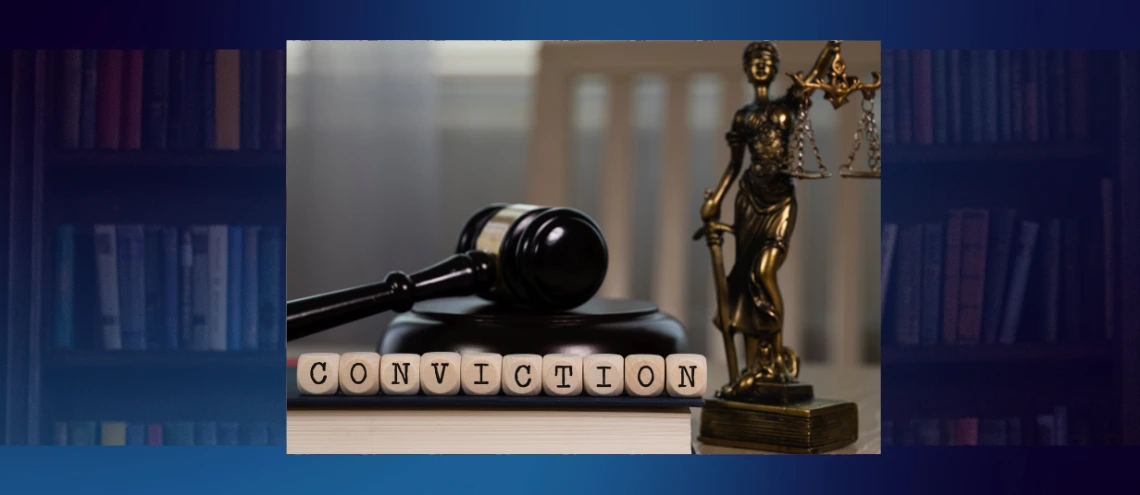
When you’re involved in a criminal trial, whether as a defendant or someone close to the case, you might hear your attorney or others talk about the record.
But what exactly is the “record” of a criminal trial, and why does it matter?
Here, we’ll break down what the trial record includes, why it’s important, and how it plays a crucial role in appeals and post-conviction relief.
Understanding the Importance of the Trial Record in Criminal Cases
What Is the “Record” of a Criminal Trial?
The “record” of a criminal trial refers to the official, written and recorded documentation of everything that happened during the trial proceedings.
It is created and preserved to provide an accurate, reviewable account of the trial.
The record is the foundation for any appeal or post-trial motion, and appellate courts rely exclusively on it when deciding whether legal errors occurred that may have affected the outcome.
What’s Included in the Trial Record?
The trial record typically includes:
Transcripts of Court Proceedings:
Every word spoken in court by the judge, attorneys, witnesses, and others is transcribed by a court reporter. This includes pre-trial hearings, jury selection (voir dire), opening and closing statements, witness testimony, objections, rulings, and sentencing.
Exhibits Admitted Into Evidence:
Any physical or documentary evidence that was officially admitted into evidence during trial becomes part of the record. This could include photographs, written documents, weapons, or recordings.
Motions and Court Filings:
All written motions, responses, briefs, and rulings submitted to and by the court are included in the record. This includes motions to suppress evidence, motions in limine, and more. (The term “in limine” means “at the threshold” in Latin, referring to the point before the trial begins.)
Jury Instructions:
The instructions the judge gives to the jury before deliberation are a key part of the record.
Verdict and Sentencing:
The jury’s verdict and the judge’s final sentencing ruling are part of the official record.
Why Is the Trial Record Important?
1. Foundation for Appeals
If you’re convicted of a crime and decide to appeal, the appellate court will only consider what is in the trial record.
You can’t introduce new evidence or arguments that weren’t presented in the original trial.
The appellate court reviews the record to determine if the trial court made any legal mistakes – such as improperly admitting evidence, allowing unconstitutional procedures, or issuing incorrect jury instructions.
2. Protection of Rights
The trial record helps ensure that your rights were protected throughout the trial process.
If your constitutional rights were violated – say, your right to a fair trial or to effective assistance of counsel – the record provides the basis for raising those issues.
3. Transparency and Accountability
The existence of a trial record ensures transparency in the judicial process.
It allows attorneys, judges, and appellate courts to accurately review and assess what happened at each stage of the proceedings.
What’s *Not* in it?
It’s important to understand that conversations held outside of court:
- such as informal talks with your attorney…
- or behind-the-scenes law enforcement actions out of the public eye…
are not part of the trial record unless they were introduced into the court proceedings in some official way.
Similarly, evidence that was not admitted at trial, even if it existed, is not part of the record and cannot be considered during an appeal.
Can it Be Corrected?
In certain situations, if there’s an error or omission in the trial record, the parties may ask the court to correct it. This usually happens through a process called *record supplementation* or a *motion to correct the record*.
However, the scope of such corrections is specifically limited to ensure that the record accurately reflects what actually occurred.
Final Thoughts
If you’re facing a criminal trial or considering an appeal, understanding the role and content of the trial record is essential. It’s the foundation for your legal rights after trial and is your only avenue for raising claims of legal error.
At Blizzard and Zimmerman Attorneys we represent clients across Texas for post-conviction relief. We carefully review the trial record for every post-conviction case we handle. If you’re looking to appeal a conviction, or seeking a sentence modification, our team is here to protect your rights at every step.
Have Questions About Your Case?
Blizzard and Zimmerman Attorneys stand ready to help. Contact our office today to schedule a free free case review.
We’re here to help you understand your or your loved one’s options and fight for your future.

